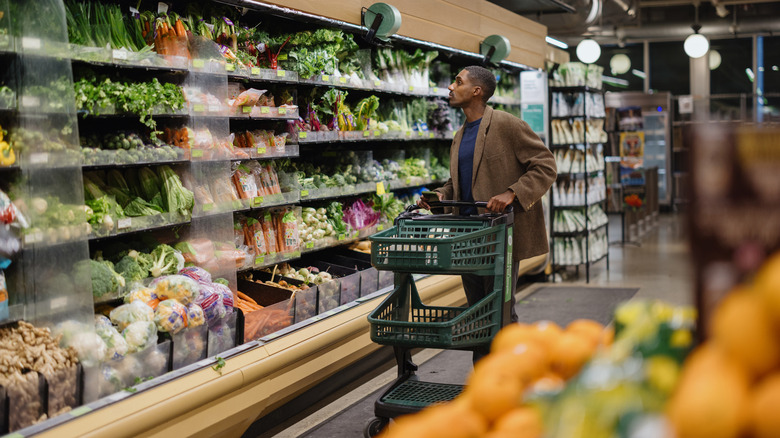How To Stay Up To Date With The Latest Food Product Recalls Before It's Too Late
Food recalls occur when a product has either caused injury or illness to someone, or there is reason to believe that it could. Some of the most common reasons foods are recalled are due to the presence of harmful bacteria, such as salmonella, undeclared allergens like milk or nuts, or foreign objects, including glass or metal, in the food product. Usually, recalls are announced through government websites like the U.S. Food and Drug Administration (FDA), news outlets, or posted on various social media platforms. Recalls exist to prevent incidents like the disastrous beer recall that resulted in 20 fatalities, so you shouldn't ignore them.
Even though news travels fast, it can take a significant amount of time for recalls to be issued, and in times when inspections are less frequent or not done without a specific cause, it's worth finding ways to stay informed. To get real-time alerts on current food recalls, you can subscribe to a mailing list via Stop Foodborne Illness and through the FDA; you may also get emails about recalls from grocery stores and retailers if you are a mailing list subscriber. It's worth noting that you can also search the United States Department of Agriculture (USDA) website and the FDA's website for any recalls you may have missed. Once you've deemed your food stores safe, make sure you're signed up for alerts so you don't miss any recalls that may happen going forward.
Why recalls seem so common and what to do if you missed one
If you feel like recalls are more common now than they once were, you're not wrong. It's not necessarily true that food has gotten worse, but that technology has improved over time. Facilities now have equipment that can find potential foreign objects, like glass, metal, or other debris that, in the past, may have gone unnoticed. Tracking foodborne illnesses has also become a more thorough process, with the ability to trace an outbreak from a restaurant back to the supplier or store selling contaminated food and potentially save lives. Food product manufacturers also undergo more frequent inspections, leading to greater accountability and consistency in safety standards.
If you've eaten recalled food because you missed the notice, don't panic. First, find out what the recall is for and if it will affect you negatively. If the recall is for a milk allergen and no one in your home is allergic to milk, you're probably good to go. If it is an issue, and the meal or snack was recent, monitor yourself for any symptoms of illness or injury, depending on what the food was recalled for. If you are experiencing symptoms, reach out to your medical provider for advice.
If there's no adverse reaction, make sure any other people in your house have also not eaten the food, and clean the area where it was stored to prevent the spread of any bacteria. Usually, a recall notice will state any instructions on what to do with that item. You may need to throw it away, or, in many cases, the item can be returned to the store you purchased it at for a refund and proper disposal.

